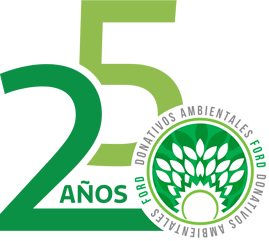Eligibility requirements
Projects submitted for Ford Environmental Grants must meet the following profile:
- be led by legally constituted non-profit organizations with their own bank account
- demonstrate positive community impact
- explicitly contribute to the United Nations Sustainable Development Goals (SDGs)
- include environmental education actions as part of its intervention
- have the support of public-private alliances that make it sustainable
Only projects that are being executed and that can demonstrate relevant preliminary results will be selected. Projects that have not been initiated will not be considered.
Only projects that are being executed in Puerto Rico, Panama, Costa Rica, Dominican Republic and Guatemala will be accepted.
Projects that have won in the edition prior to the year of the open call do not qualify. Winning projects of the program in other years may submit a proposal and will be evaluated by the jury.
When presenting the project, only one of the following four categories should be chosen, opting for the one that best reflects its main environmental contribution:
- Conservation and recovery of biodiversity: Projects related to the protection, recovery and conservation of ecosystems, their flora and fauna.
- Food Security: Ecological agriculture projects and those related to the sustainable management of ecosystems that are strategic for the availability, access, and consumption of healthy foods in vulnerable communities.
- Waste Management: Projects that help reduce, reuse, recycle and recover waste generated in the communities and generate a civic culture of proper waste management.
- Renewable Energy: Projects that promote the use of energy sources based on renewable natural resources (sun, wind, water, plant or animal biomass) as a way to contribute to the fight against climate change.
The project submitted to the Ford Environmental Grants must be executed technically and financially in a maximum period of 12 months, in case of being selected as winner.
The budget submitted must reflect the project execution costs, establishing the specific use for which it will be used in case of receiving the grant. It cannot be used to pay operating expenses of the organization presenting the project such as salaries, fringe benefits or travel expenses.
Evaluation process
For each edition of the Ford Environmental Grants, a jury of experts is assembled to evaluate ad honorem and independently the projects presented.
The jury evaluates each proposal based on the following evaluation criteria:
- Contribution to sustainable development: the project contributes in an integral way to the economic, social, and environmental development in the community where it is implemented.
- Community impact: the project has the vision of empowering people and communities during its execution.
- Multisectoral partnerships: the project is sustainable over time because it has or plans to forge public-private partnerships that complement the resources provided by Ford.
- Multiplying effect: the project has the potential to replicate and scale up in other communities.
The jury will score each criterion between 1-5, taking into consideration the following qualifiers:
- Poor
- Regular
- Good
- Very good
- Excellent
The jury will select as finalists the projects with the highest score.
Projects that do not match up to the indicated categories will be disqualified from the evaluation.
The jury has the power to summon the proponents of the projects to a virtual interview, to request further information and might ask for additional documents, if necessary.
The project proponent who does not answer the questions or does not deliver the requested additional material in the time required by the jury, will be disqualified from the evaluation process.
The jury will have the power to award the amount of the grant that, to its better judgment, is necessary for the selected projects, regardless of the amount that the proponents have indicated in the application form.
If any member of the jury is found to have a conflict of interest with a submitted project, it will abstain from evaluating that project and will be replaced by an alternate jury, if necessary.
The decisions of the jury will be final, firm, and indisputable.
Commitment
The materials submitted for the jury’s consideration will not be returned and will become the property of Ford’s offices for Central America and the Caribbean.
When submitting the project, proponents authorize the use of information and images presented for earned media inquiries and promotional use by the Ford offices for Central America and the Caribbean.
The organizations of the winning projects of the Ford Environmental Donations commit to:
- Complete and submit in online format a:
- Progress Report six (6) months after receiving the donation
- Final Report at the maximum of twelve (12) months from when the donation was received,
period in which the execution of 100% of the project must have been completed.
- Provide written or graphic documentation that is requested to show the progress of the project.
- Complete a release of responsibility where you authorize Ford to use the submitted materials, information and images about your project for unrestricted dissemination in different mass and social media.
- Participate in interviews and publicity efforts to disseminate information about their project to be requested in prior coordination with Ford.
- Participate in at least one event or conference for educational purposes to present details about the impact of the project on the conservation of the environment and its contribution to the Sustainable Development Goals (SDGs).
- Use the Ford Environmental Grants logo in project materials during the following year after receiving the contribution, with prior written authorization from the Ford offices for Central America and the Caribbean.


